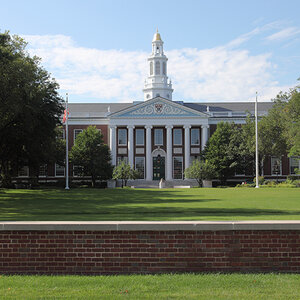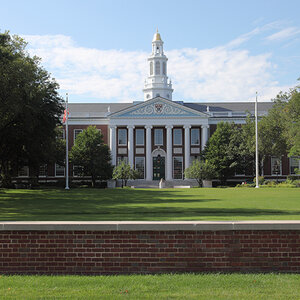Harvard School of Public Health Receives $15 Million
The Harvard School of Public Health has received gifts totaling $15 million from the Charina Endowment Fund and alumnus Richard L. Menschel (MBA,'59) and his wife, Ronay, board chair of Phipps Houses, in support of the school's efforts to redesign its educational strategy and improve health systems performance globally.
The HSPH announced a $12.5 million gift from the Menschels and Charina to establish the Transforming Public Health Education Initiative Fund, which will support the development of innovative materials, technologies, and approaches needed to redesign the master's degree program for health professionals and create a new doctorate program in public health. Among other things, the funding will underwrite efforts to include more "real world" learning opportunities and "flipped classroom" experiences in which lecture-style material is delivered online while classroom time is spent on developing strategies for solving the types of problems students are likely to encounter in their careers.
The fund also will support facilities enhancements to make the innovations possible, facilitate opportunities for HSPH faculty to collaborate with other faculty across the university, and encourage faculty to learn new ways of teaching that more actively involve students in learning.
Within the last year, the Charina Endowment Fund and the Menschels gave $2.5 million to fund Ariadne Labs, a joint initiative of HSPH and Brigham and Women's Hospital that aims to improve health systems performance in the United States and abroad.
"Public health students preparing for leadership roles in government, nongovernmental agencies, and private firms need both in-depth knowledge in specialized areas of public health and a wealth of competencies that enable them to work collaboratively across the wide range of disciplines involved in improving the world's health," said HSPH dean Julio Frenk. "We are re-envisioning our approach to education in our professional programs to enable our students to meet the rapidly changing needs of the field."






